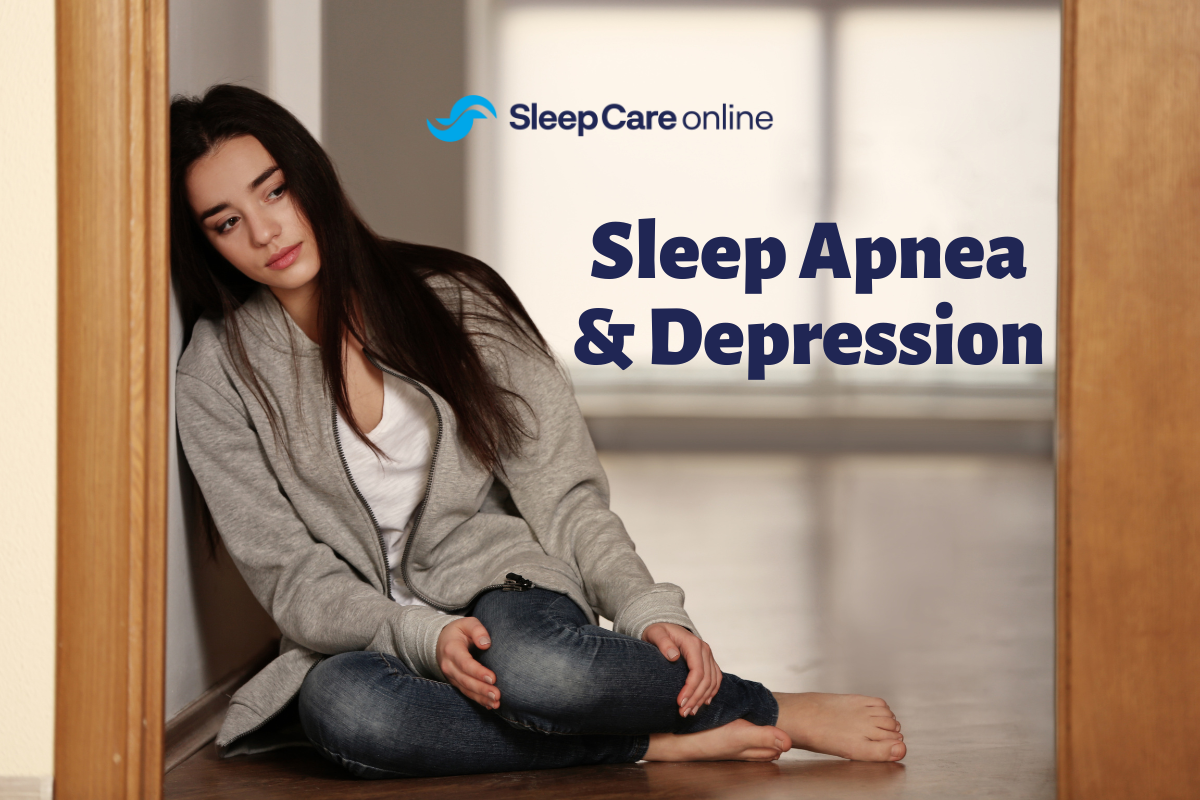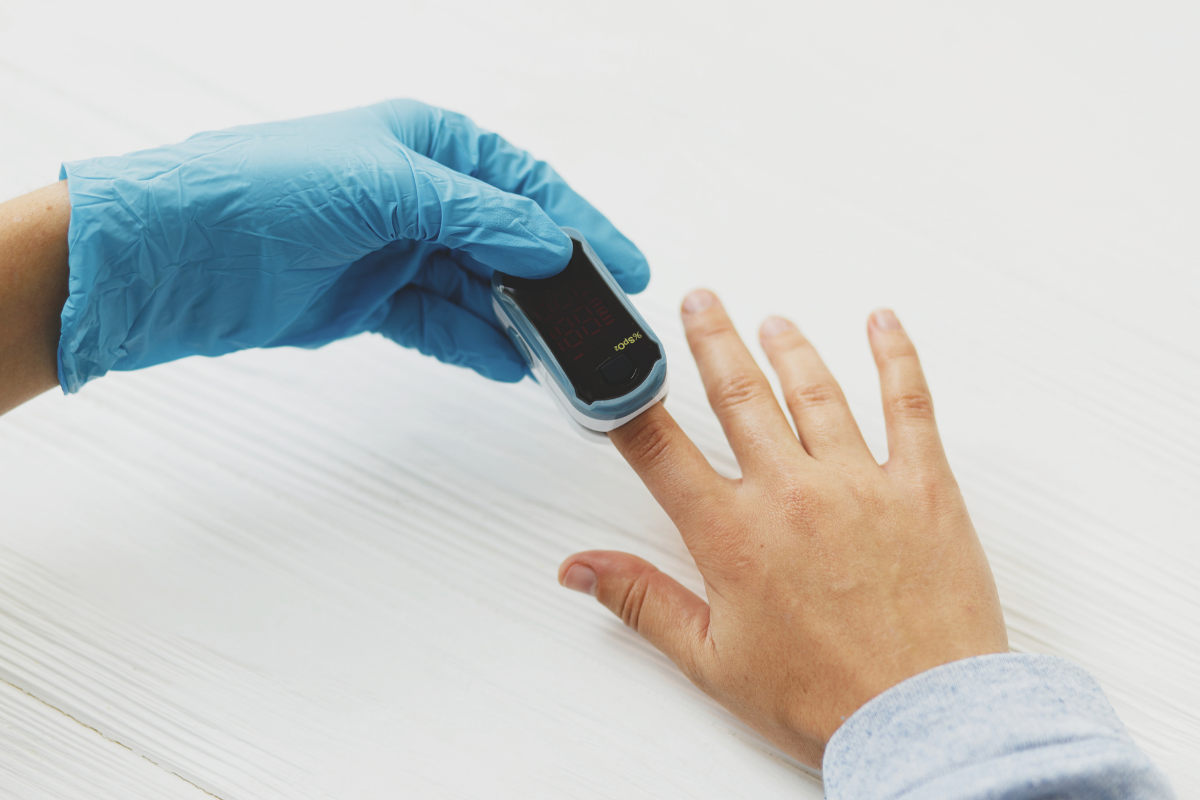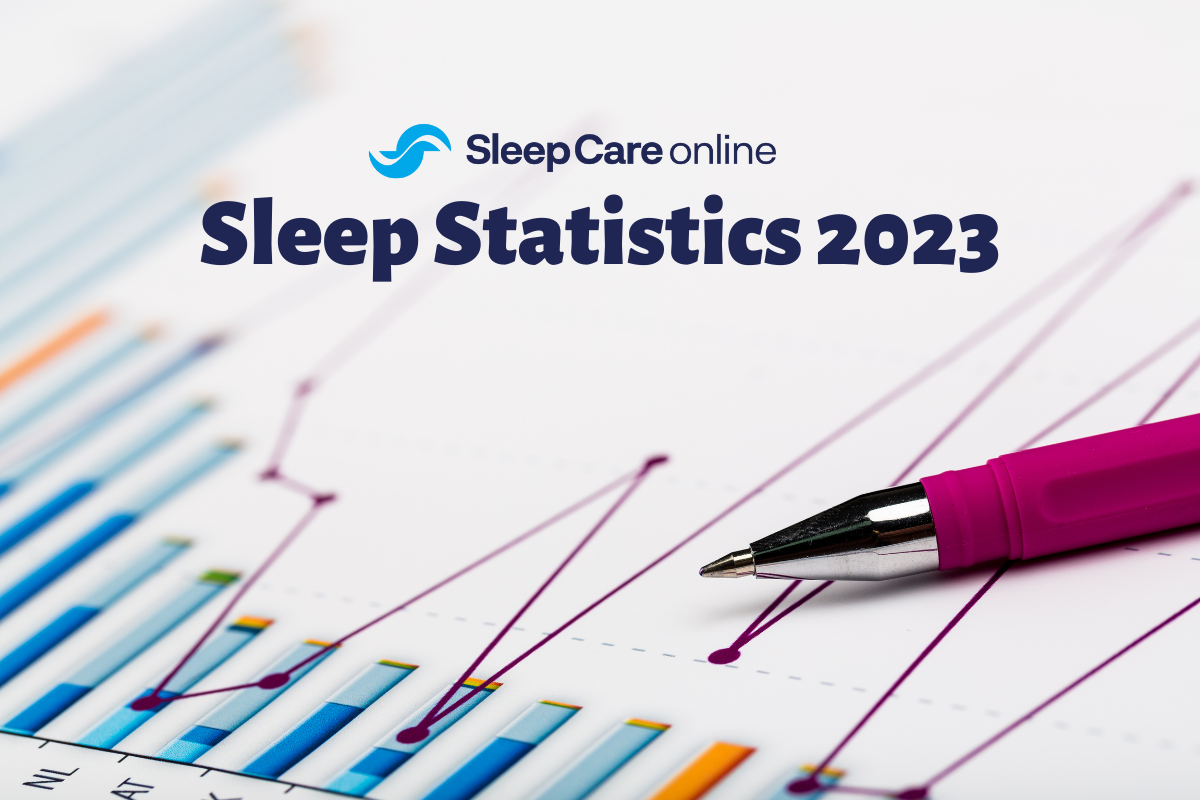 The thyroid gland plays an important role in proper body function. The hormones it releases help to regulate metabolism, body temperature, heartbeat, and more.1 It is not uncommon for the thyroid gland or surrounding area to become enlarged. While an enlarged thyroid does not necessarily cause sleep apnea, it can contribute to several health and sleep problems that must be taken seriously.
The thyroid gland plays an important role in proper body function. The hormones it releases help to regulate metabolism, body temperature, heartbeat, and more.1 It is not uncommon for the thyroid gland or surrounding area to become enlarged. While an enlarged thyroid does not necessarily cause sleep apnea, it can contribute to several health and sleep problems that must be taken seriously.
What is Hyperthyroidism?
Hyperthyroidism occurs when the thyroid produces too much of the hormone thyroxine. Patients may experience a rapid or irregular heartbeat and nervousness, tremors in their hands or fingers, and night sweats. Overstimulation may also affect sleep.
Can Hyperthyroidism Cause Sleep Apnea?
While hyperthyroidism may not have a bearing on sleep apnea, other sleep disorders, such as insomnia, could be present. The excessive energy and restlessness of hyperthyroidism can cause sleepless nights or frequent awakenings.
Be sure to speak to a doctor if you feel you may suffer from hyperthyroidism, as proper medication can help regulate hormone production.
What Is Hypothyroidism?
While hyperthyroidism overstimulates, hypothyroidism produces too little thyroxine. Those with hypothyroidism, also known as Hashimoto’s disease, can experience chronic fatigue, sensitivity to colds, and weight gain. A thyroxine boost is one of the most common medical strategies to help the body produce healthy levels of the hormone.
Can Hypothyroidism Cause Sleep Apnea?
Hypothyroidism can be linked to sleep apnea. Patients with hypothyroidism typically have enlarged thyroids. This swelling can lead to obstructed airways and potentially sleep apnea. People with an underactive thyroid are more likely to develop sleep apnea, and about 4 in 10 people with an underactive thyroid also have sleep apnea.2
Over time, frequent apneas lead to chronic loss of sleep which may contribute to enhanced hypothyroidism symptoms. The combined effect of hypothyroidism and sleep apnea leaves individuals drowsy during the day, struggling to concentrate, and grappling with poor memory.
Hypothyroidism Vs. Hyperthyroidism – What Is The Difference?
Two of the major thyroid gland problems include hypothyroidism and hyperthyroidism. Hypothyroidism happens when your thyroid gland doesn’t make enough thyroid hormones to meet your body’s needs. If you have an underactive thyroid, there may be some changes to your body that may occur including upper airway restrictions that could lead to trouble breathing while you are asleep.
Alternatively, hyperthyroidism refers to overproduction of the thyroid hormones by the thyroid gland. An overactive thyroid speeds up the body’s metabolism and can cause different symptoms to the body including weight loss, hand tremors, and rapid or irregular heartbeat
What Are The Symptoms Of Hyperthyroidism?
The symptoms of an overactive thyroid include:
- difficulty sleeping
- nervousness and/or anxiety
- persistent tiredness and weakness
- sensitivity to heat
- swelling in your neck from an enlarged thyroid gland
- an irregular and/or unusually fast heart rate (palpitations)
- twitching or trembling
What Are The Symptoms Of Hypothyroidism?
The symptoms of an underactive thyroid include:
- tiredness
- constipation
- sensitivity to cold
- dry and/or irritated skin
- weight gain
- puffy face
- hoarse voice
How Does the Thyroid Affect Your Sleep?
Hyperthyroidism (overactive) can cause difficulty sleeping due to arousal from nervousness or irritability, as well as muscle weakness and constant feelings of tiredness. An overactive thyroid may also lead to night sweats and frequent urges to urinate, both of which can disrupt sleep.
Hypothyroidism can also cause hypersomnia, the irrepressible need to sleep, or lapses in sleep that occur daily. Hypersomnia can occur due to an underlying medical disorder, and hypothyroidism is considered the leading cause of hypersomnia due to a disorder in the endocrine system. Additionally, untreated hypothyroidism can be mistaken for sleep-related hypoventilation or excessively slow or shallow breathing that occurs primarily during sleep.
Some studies have linked an underactive thyroid to poor quality sleep, longer sleep onset – or the time it takes to fall asleep – and shorter sleep duration during the night. Younger people, individuals with a relatively low body mass index, and women are all considered at higher risk of developing sleep problems due to hypothyroidism.
Sleep habits may play a role in your susceptibility to thyroid disease. One study found that people who sleep fewer than seven hours per day are at greater risk of developing hyperthyroidism while sleeping more than eight hours per day may increase the risk of both overactive and underactive thyroid function. Additionally, optimal sleep is believed to support a healthy immune system and people with weaker immune systems are at higher risk of developing thyroid dysfunction.
When to Seek Help from A Doctor for an Enlarged Thyroid?
Hypothyroidism develops slowly, so many people won’t notice their symptoms for years. It also shares symptoms with a wide range of other medical conditions, so your doctor will likely order additional testing. The same is true of hyperthyroidism and most diagnoses for an overactive thyroid also entail multiple blood tests. For many older patients, hyperthyroidism can present differently and may be mistaken for depression or dementia because it can cause similar symptoms such as loss of appetite and social withdrawal.
These additional blood tests may evaluate your thyroxine, triiodothyronine, and thyrotropin counts to determine whether your thyroid is overactive or underactive. People with hypothyroidism may be prescribed levothyroxine, an artificial hormone intended to boost thyroid function, and tested six to eight weeks after they begin taking the medication to see if their counts have improved. If hyperthyroidism is suspected, the patient may be prescribed methimazole or another type of anti-thyroid medication.
Thyroid testing is often ordered for pregnant women due to their higher risk of developing thyroid disease. These tests may also be suggested for people seeking fertility treatment, as both hypothyroidism and hyperthyroidism can lead to difficulty conceiving
How Can Thyroid Patients Get a Sleep Apnea Test?
Treatment of sleep apnea for thyroid patients begins with an accurate diagnosis. Often, doctors prescribe overnight studies in sleep clinics. Technicians in these clinics observe sleep patterns to determine a diagnosis.
For more convenience and comfort, many choose to take a sleep apnea test at home. You can find out by taking a home sleep test from Sleep Care Online.
How Does a Home Sleep Apnea Test Work?
Follow these steps to receive your home sleep apnea test today.
- With the Complete Care Package, schedule a 10-minute telehealth visit with a healthcare provider to discuss your symptoms, upcoming sleep study, test results, and treatment options.
- A multi-night, disposable home sleep apnea test is mailed to your home to be completed at your convenience.
- A physician analyzes the sleep data and provides a prescription if needed.
- Schedule an optional follow-up appointment (additional fee applies).
- We connect you to sleep experts who can offer customized sleep therapy options, assistance in equipment purchase, and initial set-up.
Home sleep apnea tests and telehealth services are now available nationwide. Call 866-465-4478 or email contact@sleepcareonline.com for more information.
References
- WebMD. What Does Your Thyroid Do? 2019 May 16. Accessed September 2020.
- Boost Thyroid. The connection between sleep apnea and Hashimoto’s. February 2019.




